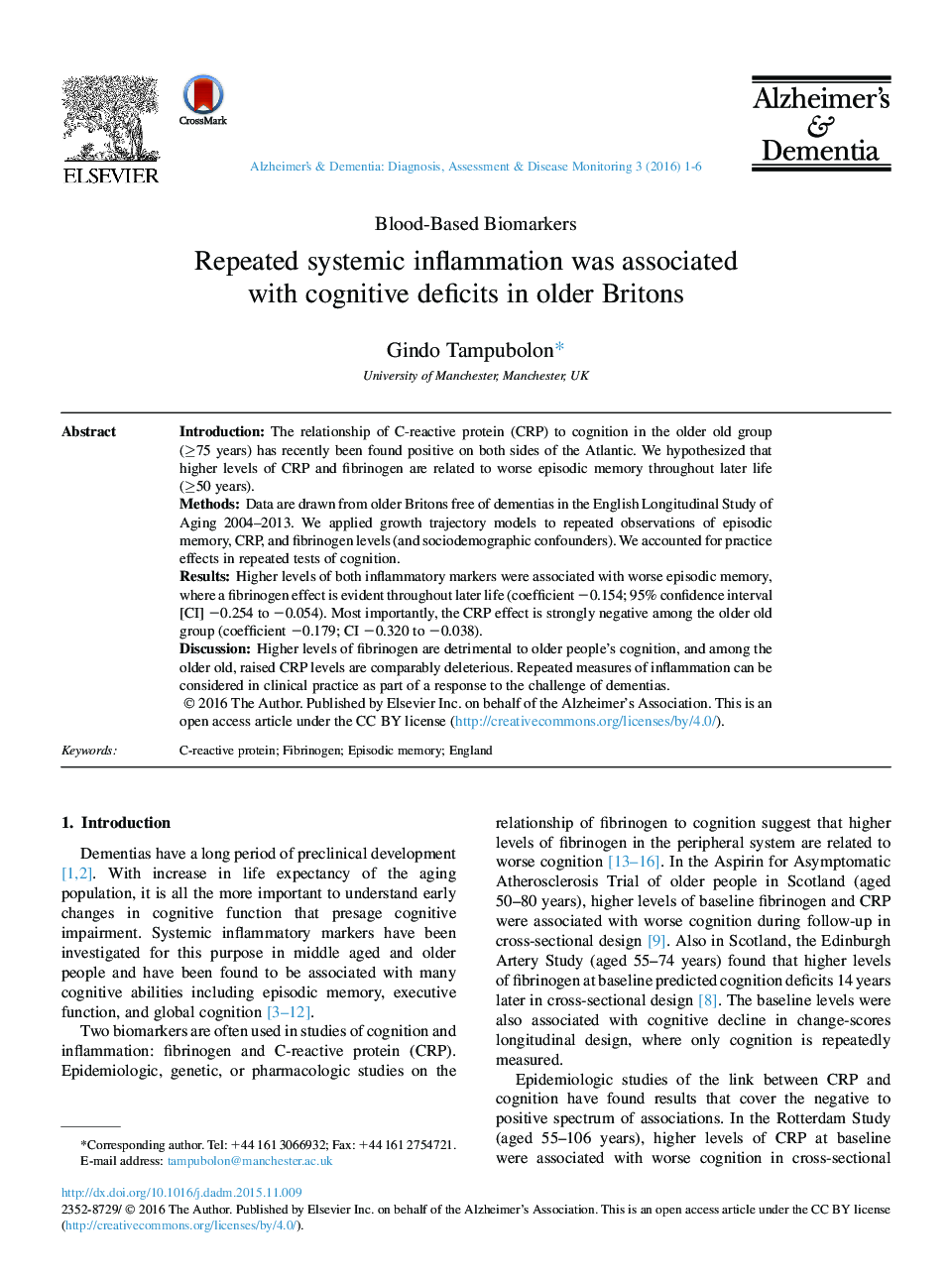| Article ID | Journal | Published Year | Pages | File Type |
|---|---|---|---|---|
| 3032014 | Alzheimer's & Dementia: Diagnosis, Assessment & Disease Monitoring | 2016 | 6 Pages |
IntroductionThe relationship of C-reactive protein (CRP) to cognition in the older old group (≥75 years) has recently been found positive on both sides of the Atlantic. We hypothesized that higher levels of CRP and fibrinogen are related to worse episodic memory throughout later life (≥50 years).MethodsData are drawn from older Britons free of dementias in the English Longitudinal Study of Aging 2004–2013. We applied growth trajectory models to repeated observations of episodic memory, CRP, and fibrinogen levels (and sociodemographic confounders). We accounted for practice effects in repeated tests of cognition.ResultsHigher levels of both inflammatory markers were associated with worse episodic memory, where a fibrinogen effect is evident throughout later life (coefficient −0.154; 95% confidence interval [CI] −0.254 to −0.054). Most importantly, the CRP effect is strongly negative among the older old group (coefficient −0.179; CI −0.320 to −0.038).DiscussionHigher levels of fibrinogen are detrimental to older people's cognition, and among the older old, raised CRP levels are comparably deleterious. Repeated measures of inflammation can be considered in clinical practice as part of a response to the challenge of dementias.
